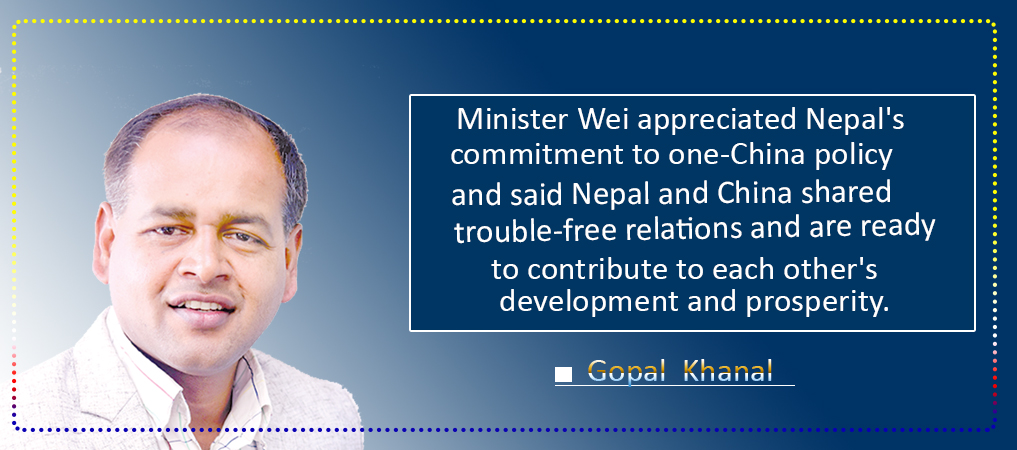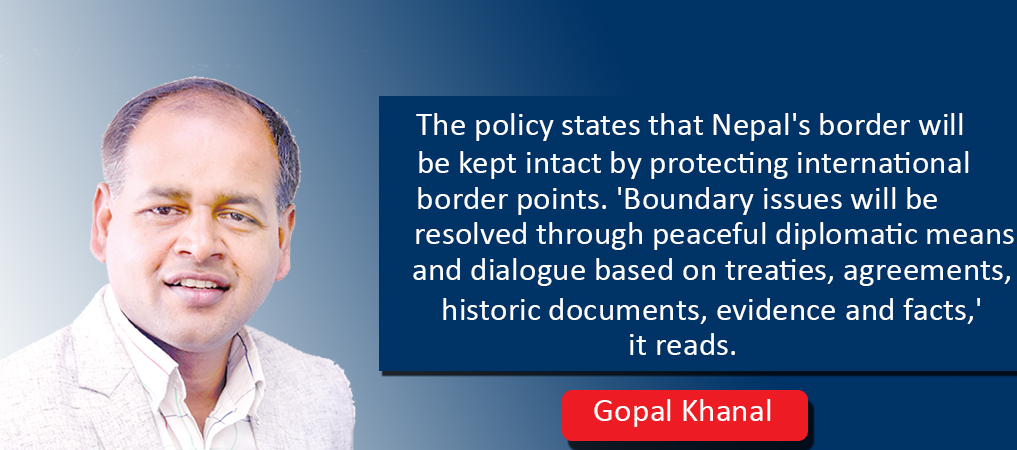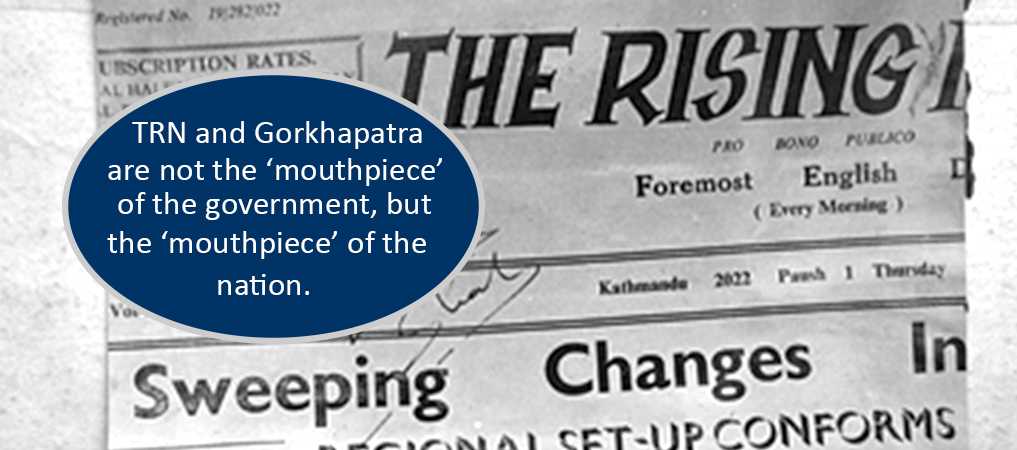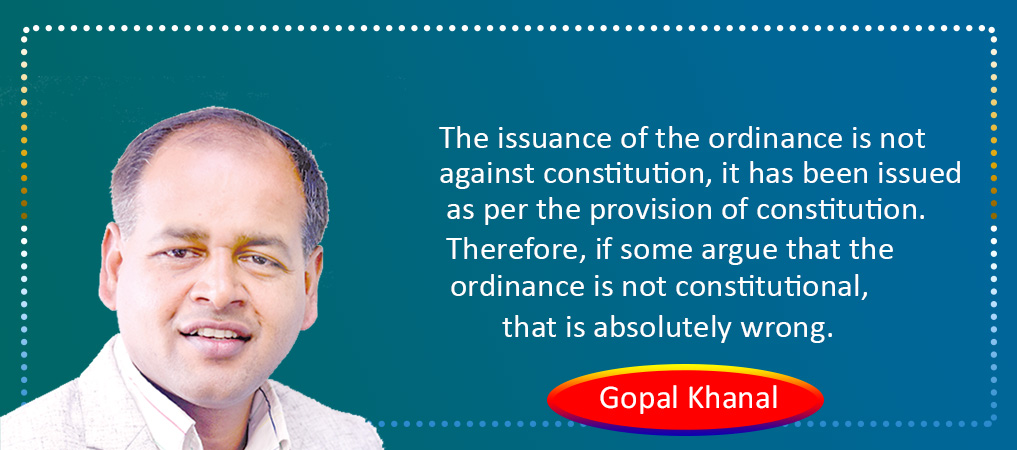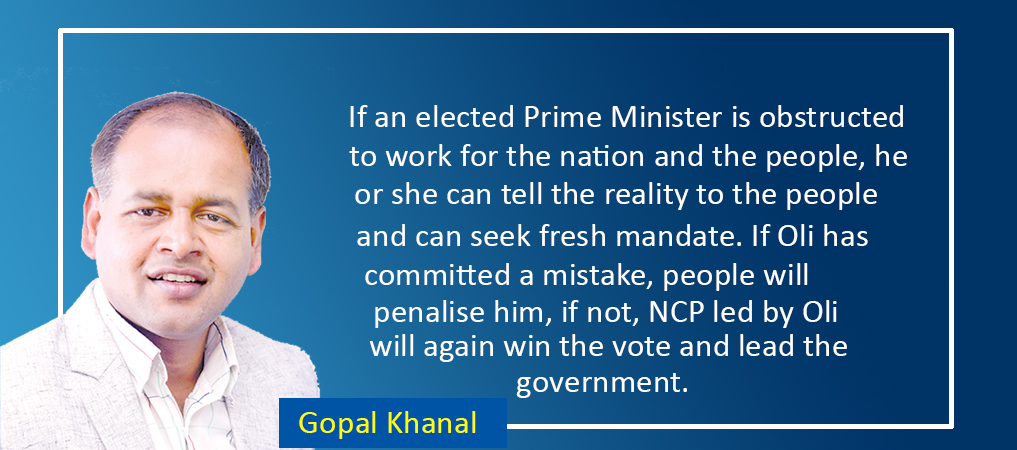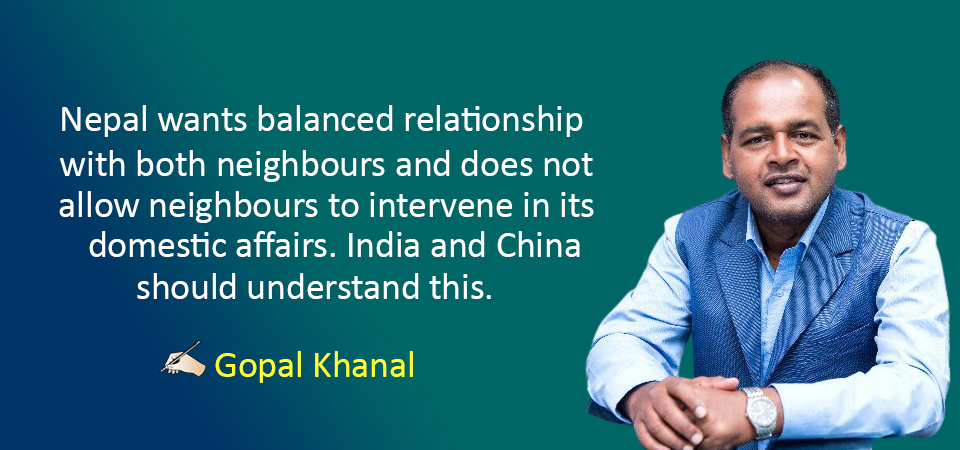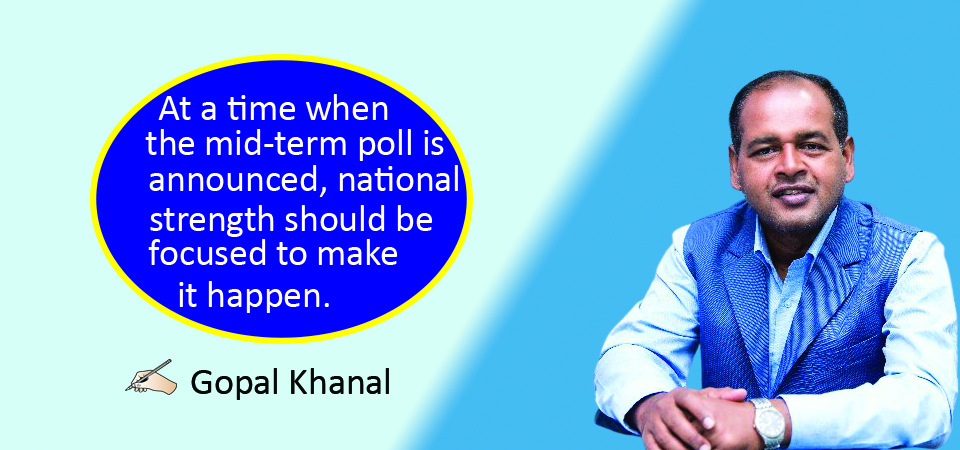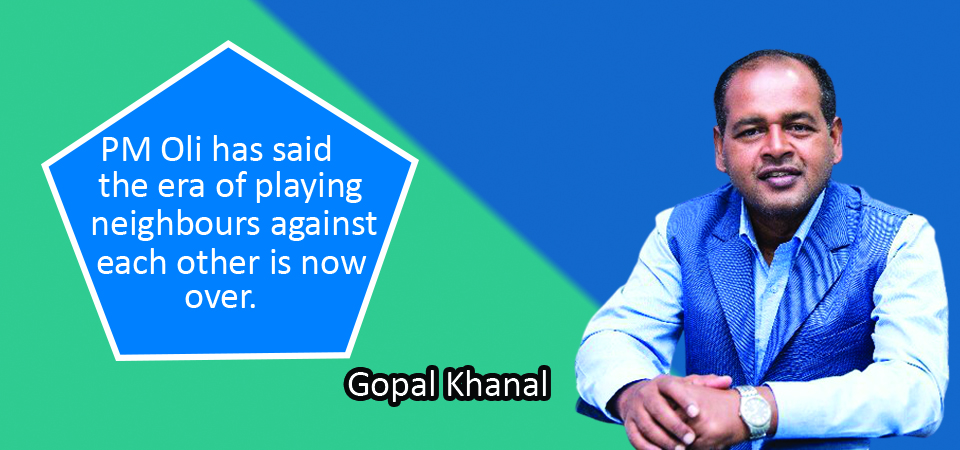Vote Of Confidence Litmus Test For Madhav Nepal
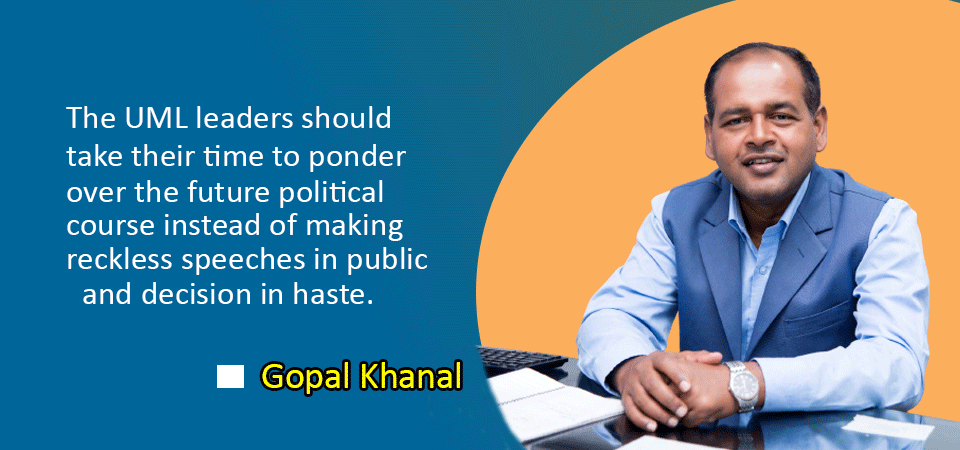
Gopal Khanal
As Prime Minister KP Sharma Oli decided to secure a vote of confidence in the federal parliament, the national politics has taken a new turn. It has obviously shaken the power-centric politics. President Bidya Devi Bhandari has called the meeting of House of Representatives (HoR) on May 10.With the House meeting approaching, the leaderships of the major parties are busy making their strategy to tip the scales in their favour.
Main opposition Nepali Congress on 4 May decided to fail Prime Minister Oli's move of seeking the vote of trust. Similarly, CPN-Maoist Centre on the same day decided to withdraw its support to the Oli-led CPN-UML government. As expected, the two major parties - NC and Maoist Centre - have stood against the vote of confidence. The fourth largest party in parliament, Janata Samajbadi Party (JSP), has not yet taken the decision on it. The JSP that is embroiled in internal bickering has to take the decision without delay.
In a parliamentary system, the opposition leader is considered as a prime minister-in-waiting. Therefore, NC president Sher Bahadur Deuba's claim on the premiership is quite natural. But, he still seems reluctant. Because Deuba knows that making such a claim is not a cakewalk. Maoist Centre chair Pushpa Kamal Dahal Prachanda is still reeling from the pain of divorce between the UML and his party by the Supreme Court. So he has gathered all his strength to oust Oli from the post of Prime Minister at all cost. What Prachanda gets now is not the main issue but whether Oli wins vote of confidence or not has drawn the attention of all.
Within the JSP, Mahantha Thakur and Rajendra Mahato, who have banded together, have been continuously engaged with Prime Minister Oli to get their pending demands fulfilled. Oli has addressed some of their demands. The duo believes that Prime Minister Oli will fulfill their other demands gradually based on the due legal process if they extend their support to the latter.
Hobson's choice
But, the PM’s decision to win the vote of confidence has put Madhav Kumar Nepal and his faction on the horns of a dilemma. Nepal and his faction have only two options.
First is to stay within UML. If Nepal and other leaders of his faction would like to remain in the party as they have often been saying so, they must stand with Prime Minister Oli. They should present in the meeting of HoR and vote in favour of vote of confidence. To win the vote of confidence motion, Prime Minister Oli needs support of all 121 members of parliament of his party. If the faction of Thakur and Mahato extends their support to the Prime Minister, he will easily ride out the political storm.
Therefore, in this crucial game of power politics, Nepal faction seems decisive whether to give continuity to Oli as Prime Minister or not. If Oli gets the vote of confidence, the government will continue for full term and there will be high possibility of party reunification. Madhav Nepal should understand that there lies the litmus test for him. And his right decision helps save the party and the government.
Second is to choose to stay out of the UML. If Nepal and Co decide to remain absent or cross the floor during the voting over the crucial motion, it is likely that their door to remain in the party will be shut permanently. It is quite understandable tha t if the leaders like Nepal, Jhalanath Khanal and Bhim Rawal, who have sacrificed most of their energy and time in building the party, go against the move of the Prime Minister and party chair, they naturally deserve harsh disciplinary action.
Prime Minister Oli will remove them from both entities - the parliamentary party and general membership of the party. Such provisions are mentioned in the Act related to the political party and parliamentary regulations. Thus, the only option left to Nepal faction is either to form another party or join the Maoist Centre as Prachanda has said he had in deep love with Nepal and the leaders of that faction.
Even if they resign en masse as lawmakers, the party will oust them from the general membership of the party, too. These three foreseen moves are aimed at demolishing the UML and its government.
Sink or swim
Therefore, on May 10, it will be decided whether Nepal and other leaders of his faction will stay in the party or leave it. If Nepal decides to quit the party, it is not clear how many of his colleagues will join him. If they leave the UML, won’t it be the tragic end of their politics? Can a leader, who led the party for three consecutive terms as General Secretary and became Prime Minister from the same party, ruin his and others’ future? Can he form a new party demolishing the parent party at this stage by ending his political career?
Therefore, Nepal should think hundred times to reach a decision, which will make him either a savior or a slayer of the party. If he wants to see the UML as a strong party and prove that he has been doing all these to save the party, then he should unconditionally support the Prime Minister. Then Nepal can say he and his faction saved the party and the government. And Prime Minister Oli will be compelled to take them on board.
The UML leaders should take their time to ponder over the future political course instead of making reckless speeches in public and decision in haste. Next 20 months will be enough to reunify the party if they avert the untoward incident on 10 May. The leaders will have time to fight internally and manage their egos till the next general election. And, again the UML can be the first choice of majority of Nepali people. The ball is in the court of the Nepal faction.
(Khanal is consulting editor at Gorkhapatra Corporation. khanalbro@gmail.com)
Recent News

Do not make expressions casting dout on election: EC
14 Apr, 2022
CM Bhatta says may New Year 2079 BS inspire positive thinking
14 Apr, 2022
Three new cases, 44 recoveries in 24 hours
14 Apr, 2022
689 climbers of 84 teams so far acquire permits for climbing various peaks this spring season
14 Apr, 2022
How the rising cost of living crisis is impacting Nepal
14 Apr, 2022
US military confirms an interstellar meteor collided with Earth
14 Apr, 2022
Valneva Covid vaccine approved for use in UK
14 Apr, 2022
Chair Prachanda highlights need of unity among Maoist, Communist forces
14 Apr, 2022
Ranbir Kapoor and Alia Bhatt: Bollywood toasts star couple on wedding
14 Apr, 2022
President Bhandari confers decorations (Photo Feature)
14 Apr, 2022




